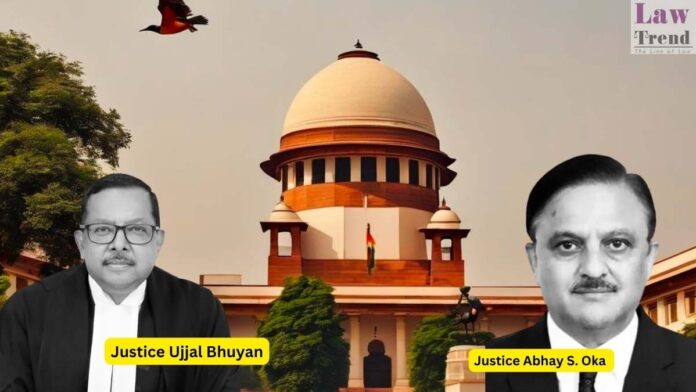The Supreme Court on Monday clarified the limited role of the Permanent Committee in the designation of Senior Advocates, stating it can only assign points and not make recommendations. This observation was made by a bench comprising Justice Abhay S Oka and Justice Ujjal Bhuyan during a hearing of a writ petition that challenged the designation of 70 lawyers as Senior Advocates by the Delhi High Court.
Justice Oka emphasized, “Under which law can the committee recommend? In the Indira Jaising judgement, there is no power to recommend. The function of the committee is to only assign points.” He referenced a recent judgment to further highlight that the Permanent Committee’s responsibilities end after assigning points based on predefined criteria.
The controversy ignited following a claim by Senior Advocate Sudhir Nandrajog that the final list of designated Senior Advocates was drafted without his consent. Nandrajog, who had resigned from the Permanent Committee, brought these concerns before the Supreme Court, leading to the issuance of a notice to the Registrar General of the Delhi High Court.
Further complications arose during the hearing when it was revealed that the committee, contrary to the Supreme Court’s directives in the Indira Jaising case, made recommendations. The Court had earlier outlined in the 2017 Indira Jaising v. Supreme Court of India and reiterated in the recent Jitender Kalla judgment that the committee’s task was purely quantitative and did not include qualitative assessments or recommendations.
During the proceedings, Justice Oka questioned the composition of the Permanent Committee of the Delhi High Court, noting discrepancies and possible overreach beyond its mandate. The court was informed that the Delhi Committee included members like the Additional Solicitor General and a nominee from the Delhi government, which was seen as problematic.
Senior Advocate Nandrajog detailed procedural lapses, stating, “The interview process ended on the 19th of November and thereafter a meeting was held on 25th of November…From 25th November onwards no meeting was ever held.”
The Court granted a month for Nandrajog to file an affidavit detailing his grievances and for the Delhi High Court to respond, suggesting that the Court seeks a resolution without further litigation. This case has sparked a broader discussion about the processes and transparency in the designation of Senior Advocates, reflecting ongoing concerns about the integrity and fairness of such systems.




